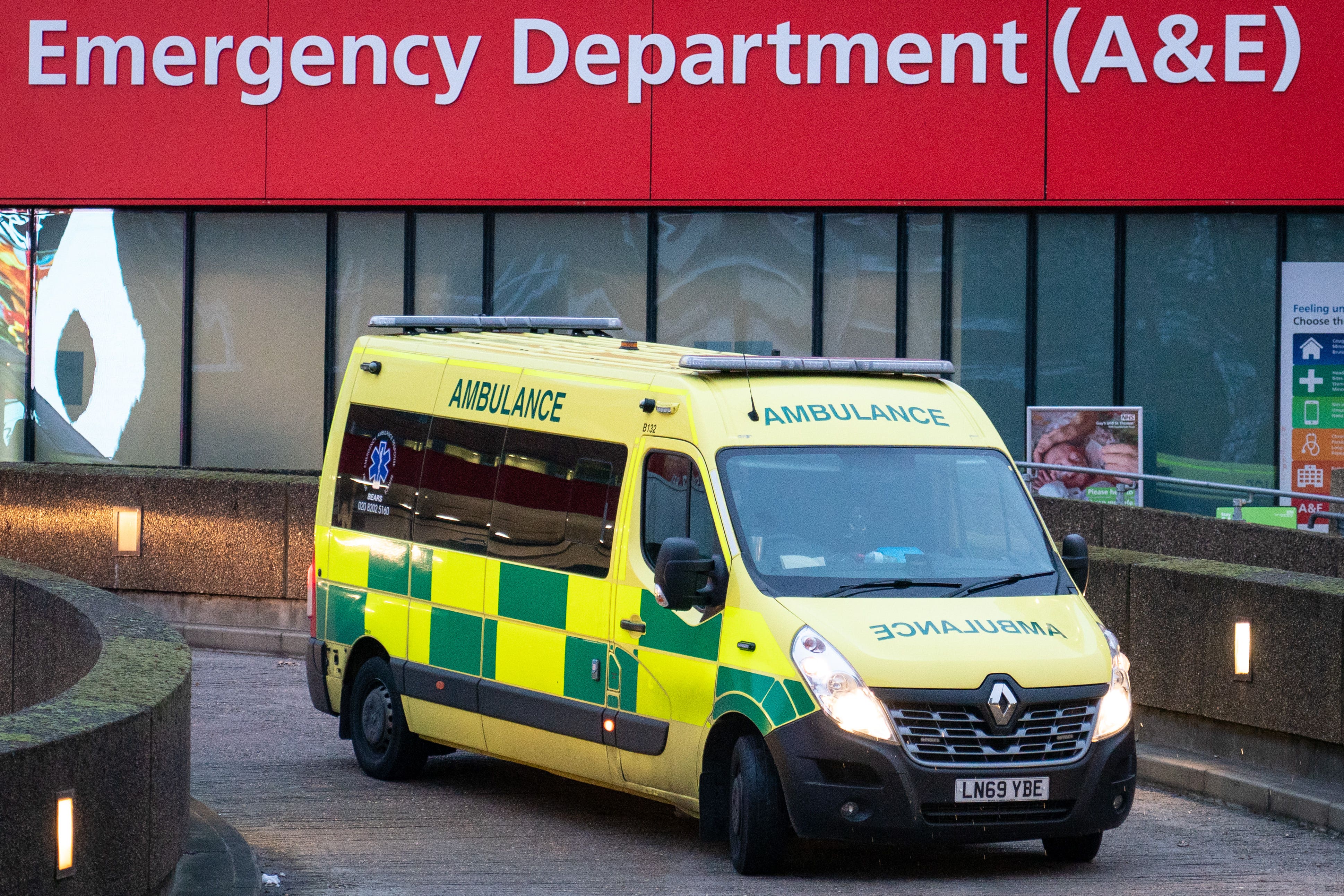What ambulance strike means for calls, response times and staffing
Ambulance strikes could “make response times incredibly stretched”, NHS Providers chief Saffron Cordery said

Your support helps us to tell the story
From reproductive rights to climate change to Big Tech, The Independent is on the ground when the story is developing. Whether it's investigating the financials of Elon Musk's pro-Trump PAC or producing our latest documentary, 'The A Word', which shines a light on the American women fighting for reproductive rights, we know how important it is to parse out the facts from the messaging.
At such a critical moment in US history, we need reporters on the ground. Your donation allows us to keep sending journalists to speak to both sides of the story.
The Independent is trusted by Americans across the entire political spectrum. And unlike many other quality news outlets, we choose not to lock Americans out of our reporting and analysis with paywalls. We believe quality journalism should be available to everyone, paid for by those who can afford it.
Your support makes all the difference.Ambulance services across England are set to go on strike before Christmas as thousands of paramedics and call handlers voted for action.
The announcement by union Unison comes as the Royal College of Nursing (RCN) confirmed 100,000 nurses across England, Wales and Northern Ireland will walk out on 15 and 20 December.
The union is calling for action on pay and a big increase in staff numbers, warning that unless these things happen, services will continue to decline.
Ambulance sources have told The Independent that it is not yet clear how badly services could be impacted when strikes happen. This would depend on the number of staff who decide not to work on the day.
Saffron Cordery, interim chief of NHS Providers, said on BBC radio four on Wednesday: “I think in terms of the ambulance strike, we know the challenges already of not having enough paramedics, call handlers available, because we’ve seen the challenges to ambulance handover times that we have at the moment in terms of not being able to transfer patients from ambulances into A&E departments and the challenges that brings when they can’t get back out on the road.
“Additional challenges on top of that, I think, will make response times incredibly stretched.”
When will the strike happen and where?
Unison is yet to set a date, however, it said the first wave of action is likely to happen before Christmas.
Unions have previously suggested they could coordinate walkouts, meaning there is a risk both Unison and RCN strikes could occur on the same day.
However, Unison would have to give at least two weeks’ notice, meaning it would have to confirm by December 1 if it intends to hold a strike on 15 December with RCN members and by next week to make 20 December.
Unison has not confirmed which trusts will see staff strike but has said thousands of 999 call handlers, ambulance technicians, paramedics and their colleagues working for ambulance services in the North East, North West, London, Yorkshire and the South West will take action.
Will I get an ambulance and what calls won’t be attended?
Ambulance services are under severe pressure with response times to the second most urgent calls taking staff more than an hour to get to. During a strike, delays could be even worse.
Nationally, the agreement with the NHS and unions is for emergency and life-saving care to be maintained, which is the primary remit of ambulances and 999 call centres.
Sources told The Independent that one option could be for services to maintain levels of staff to be able to respond to the most serious calls - category one and two calls - and deprioritise the less serious category three and four calls.
This has previously been negotiated during smaller-scale strikes.
However, senior sources suggested that on a larger scale it would be hard to not respond to category three calls, which might include an older person who has fallen.
It is also unclear how 999 call centres would operate during strikes as this work would likely count as life-saving emergency care, The Independent understands.
Will other staff or the Army be called in?
Reports have surfaced that the government is considering readying the Army to support services during the strikes.
However, healthcare leaders told The Independent that such support would be limited as not all officers are trained to drive ambulances.
To have a licence to drive a blue-light vehicle, officers need to take a four-week training course. When the Army has been called in previously, some services would have a paramedic drive to a scene and the officer drive back.
There is also concern that the NHS will not be able to turn to fire services for help as it did during the Covid pandemic, as it is unlikely the fire brigade service would provide cover for a union dispute.
Police services, the Independent was told, are also unlikely to have much capacity to step in.



Join our commenting forum
Join thought-provoking conversations, follow other Independent readers and see their replies
Comments